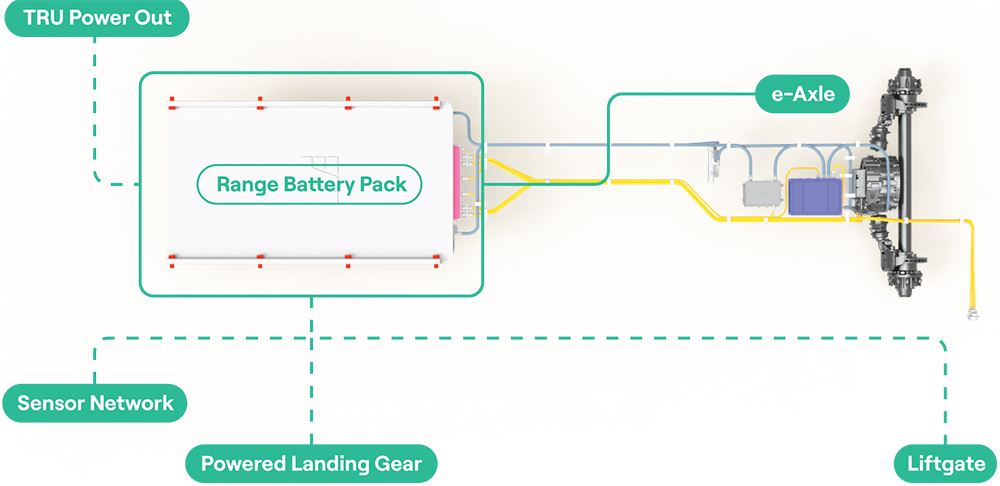Charged EVs | Range Energy’s smart trailers boost electric truck range

Towing has always been a sore point with EVs—towing a trailer inevitably eats into range, and towing a massive semi-trailer requires a tractor with a massive battery pack. But what if the trailer itself could share the burden?
That’s the idea behind Range Energy, which is developing a trailer that’s equipped with a battery pack, a motor, and intelligent features to maximize efficiency. The trailer can be paired with a legacy diesel-burning rig or an electric tractor such as the Freightliner eCascadia, Volvo VNR or Tesla Semi.
Range Energy is led by Ali Javidan, a former Tesla employee who has thought long and hard about towing. “My uncles had car dealerships, mechanic shops, lots of land in Sacramento. Growing up, one of my first experience driving was towing cars from the dealership to the service center, or moving boats around the farm,” he says.
Range’s RA-01 trailer sports a motor that powers one of the dual axles, and a battery pack mounted below the trailer body in order to maximize cargo space. A key feature is what Javidan refers to as a “smart kingpin.” The kingpin connects the trailer to the tractor, and Range Energy’s kingpin can exchange data with the tractor, providing “a real-time measurement of how hard the tractor is pulling,” and enabling the trailer to follow the tractor “kind of like an obedient dog on a leash,” as Javidan explains.
According to Range, its trailer could add approximately 100 miles of range to the rig (or increase the fuel efficiency of a legacy tractor by 35 to 40 percent). The trailer also features regenerative braking, which can reduce wear and tear on the tractor’s friction brakes and improve stability when traveling downhill. “The second-biggest maintenance item on a trailer [after tires] is brakes,” says Javidan.

There is a negative tradeoff: additional weight. Range’s RA-01 trailer adds about 4,000 pounds to the total system, Javidan says. US regulations set a maximum total weight of 80,000 pounds for a tractor-trailer rig (although an electric tractor gets an additional 2,000-pound allowance.) For trucks hauling heavy cargo such as liquids, the additional weight could cut into their cargo payload. However, as Javidan explains, many trucks carrying lighter materials are “cubed out,” which means that the truck’s interior space fills up before it reaches the weight limit.
Range plans to start beta testing next year, and aims to begin deliveries in 2025. “You will start seeing these trailers on the roads in real volumes starting in 2026,” Javidan predicts.
Range Energy is not the only company working on electrified trailers. ConMet eMobility, ZF and Einride are potential competitors.
: Popular Science